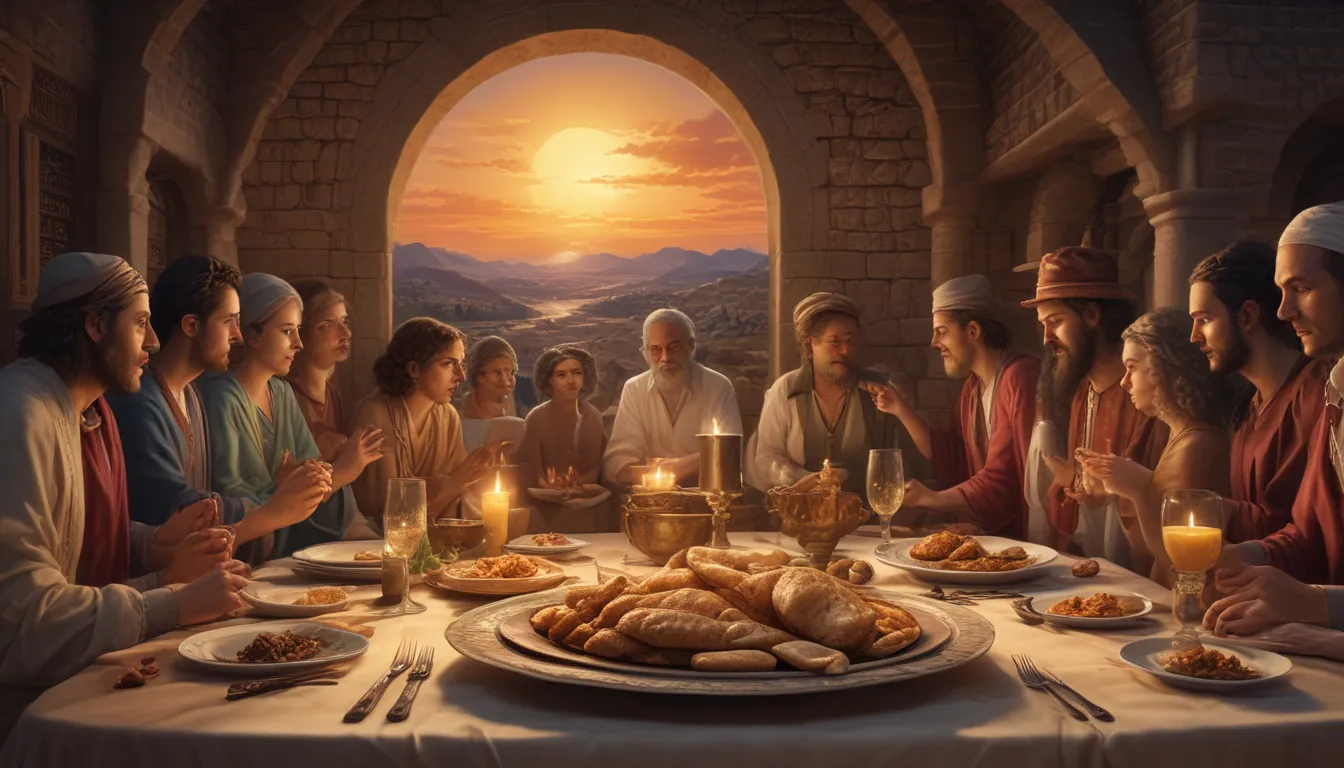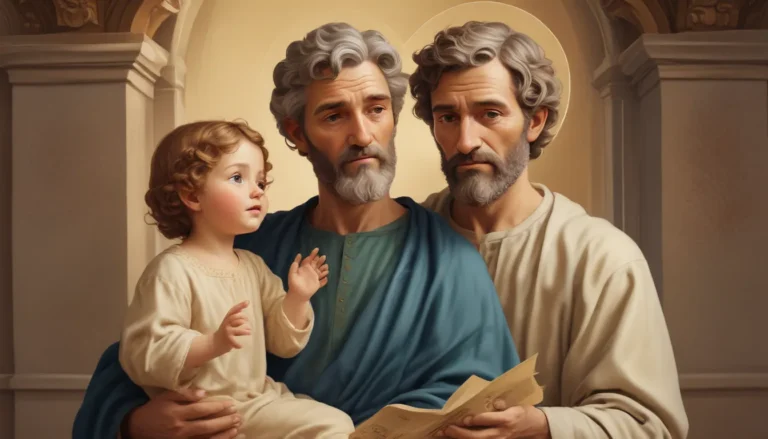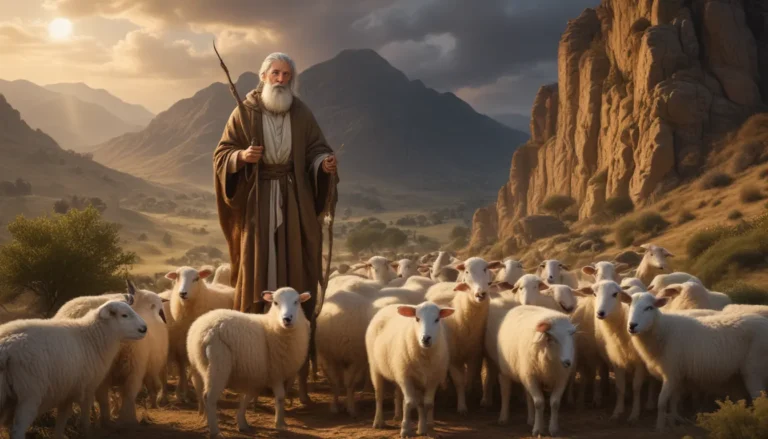The images in our articles may not match the content exactly. They are used to grab your attention, not to show the exact details in the text. The images complement the text but do not replace it.
Welcome to a captivating exploration of the Passover, a revered festival in the Jewish faith that honors the liberation of the Israelites from slavery in ancient Egypt. This annual celebration is steeped in history, tradition, and symbolism, offering a profound opportunity for reflection, gratitude, and unity within Jewish communities worldwide. In this enlightening journey, we will uncover facts about the Passover, shedding light on its cultural, spiritual, and historical importance.
Understanding the Significance of the Passover
The Passover, also known as Pesach, stands as a significant Jewish holiday that holds deep spiritual and historical meaning for the Jewish community. It commemorates the liberation of the Israelites from slavery in ancient Egypt, marking a pivotal moment in Jewish history.
Exploring the Duration of the Festival
During the Passover celebration, Jewish people observe the holiday for seven days in Israel and for eight days in the diaspora. This extended period allows for a thorough and meaningful observance of the festival’s traditions and practices, ensuring a rich and immersive experience.
The Central Role of the Seder Meal
At the heart of the Passover celebration lies the Seder, a ceremonial meal that serves as a pivotal aspect of the observance. The Seder involves the retelling of the Exodus story, the consumption of symbolic foods, and the recitation of prayers and blessings, providing a powerful way to pass down the story of the Israelites’ journey to freedom.
Delving into the Haggadah
During the Seder, participants read from the Haggadah, a text that outlines the order of the Passover Seder and contains the narrative of the Exodus. This essential component guides the rituals and traditions observed during the meal, ensuring a cohesive and meaningful experience for all involved.
Embracing Matzah in Passover Traditions
Matzah, an unleavened bread, holds a key role in the Passover diet, symbolizing the haste with which the Israelites fled Egypt. The consumption of matzah during the festival reinforces the themes of liberation and acts as a reminder of the Israelites’ journey to freedom.
Reflecting on Freedom and Renewal
The Passover serves as a poignant reminder of the Israelites’ deliverance from bondage and their journey to freedom. It symbolizes the renewal of faith, the triumph of the human spirit, and the enduring hope for a brighter future, encouraging individuals to reflect on the blessings of freedom.
Commencing the Festival with the Seder
The Passover kicks off with the Seder, which takes place on the first two evenings of the festival. Families and communities gather to partake in the Seder rituals, fostering a sense of unity, shared heritage, and collective reflection.
Fostering Reflection and Gratitude
During the Passover observance, individuals are encouraged to reflect on the blessings of freedom and express gratitude for the liberties they enjoy. This period serves as a time for introspection, appreciation, and acknowledgment of the value of liberation.
Embracing Rich Traditions and Customs
The Passover is characterized by a myriad of customs, including the removal of chametz from the home, the lighting of holiday candles, and the recitation of special blessings. These traditions contribute to the festive atmosphere and hold deep cultural and religious significance within Jewish communities.
Recounting the Story of the Ten Plagues
As part of the Seder ritual, the narrative of the ten plagues that befell Egypt is recounted, serving as a poignant reminder of the hardships endured by the Israelites and the divine intervention that led to their freedom.
Celebrating Family Gatherings and Community Bonding
The Passover brings families and communities together, fostering a sense of togetherness, camaraderie, and shared experiences. The holiday provides an opportunity for shared meals, storytelling, and the strengthening of familial and communal bonds.
Embracing the Symbolism of Spring
The timing of the Passover aligns with the arrival of spring, symbolizing a season of renewal, rejuvenation, and new beginnings. This connection to nature adds a layer of symbolism to the holiday, signifying themes of growth, hope, and optimism.
Promoting Acts of Charity and Kindness
The Passover encourages acts of compassion and generosity towards those in need, reminding individuals to extend a helping hand to others and uphold the values of empathy and benevolence. The holiday serves as a catalyst for promoting goodwill and fostering a spirit of kindness within communities.
Bridging Historical Remembrance with Contemporary Relevance
While the Passover commemorates an ancient event, its themes of liberation, resilience, and faith remain pertinent in the modern context. The festival bridges the past and present, offering timeless lessons, inspiration, and opportunities for personal growth and reflection.
Embracing the Universal Significance of the Passover
Beyond its religious and cultural importance to the Jewish community, the Passover conveys universal themes of freedom, justice, and the enduring human spirit. It serves as a source of inspiration and reflection for people of diverse backgrounds, resonating with individuals across different cultures and belief systems.
In conclusion, the Passover stands as a cherished and profound observance that encapsulates the enduring legacy of the Israelites’ journey to freedom and the timeless values it represents. This festival, with its rich traditions, symbolic rituals, and profound significance, continues to resonate with individuals and communities worldwide, fostering a spirit of unity, gratitude, and hope. As we reflect on the rich heritage and customs associated with the Passover, we gain a deeper appreciation for its cultural and spiritual significance, embodying the essence of freedom, faith, and community.
FAQs
What is the significance of the Passover?
The Passover holds great significance in the Jewish faith as it commemorates the liberation of the Israelites from slavery in ancient Egypt. It symbolizes freedom, faith, and the enduring strength of the Jewish community.
What are some traditional foods eaten during Passover?
Traditional Passover foods include matzo, bitter herbs, charoset, and a variety of dishes made without leavened ingredients, symbolizing the hardships endured by the Israelites during their exodus from Egypt.
As you immerse yourself in the rich traditions and significance of the Passover, delve into the intriguing history and cultural relevance of Manischewitz wine, a beloved staple at many Seder tables. From its humble beginnings to its status as a cherished Passover tradition, the story of Manischewitz wine is sure to captivate your interest and deepen your appreciation for the diverse elements that make the Passover such a meaningful and enduring celebration.






